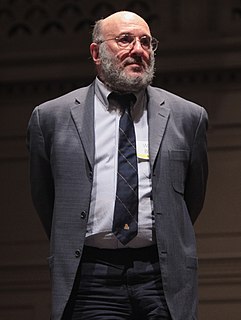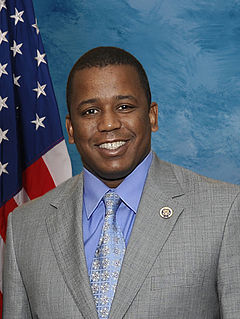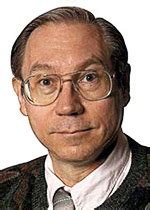A Quote by Ilana Mercer
Quotas are a perfectly logical, if diabolical, extension of the regulation of private property courtesy of the Civil Rights Act, whereby in an attempt to shape American society in politically pleasing ways, people have been coerced into liking, hiring or renting against their will or better judgment.
Related Quotes
We hold that the ownership of private property is the right and privilege of every American citizen and is one of the foundation stones upon which this nation and its free enterprise system has been built and has prospered. We feel that private property rights and human rights are inseparable and indivisible. Only in those nations that guarantee the right of ownership of private property as basic and sacred under their law is there any recognition of human rights.
It has been the fashion to speak of the conflict between human rights and property rights, and from this it has come to be widely believed that the use of private property is tainted with evil and should not be espoused by rational and civilized men... the only dependable foundation of personal liberty is the personal economic security of private property. The Good Society.
If we as a society want to cure unemployment, raise real wages, and in other ways improve our economy, we will base public policy on private property rights, the non-aggression principle and the law of free association. In the free and prosperous society, everyone may do precisely as he pleases, provided only that he does not initiate violence against non-aggressors.
[Before the Civil Rights Act of 1964], many governments in southern states forced people to segregate by race. Civil rights advocates fought to repeal these state laws, but failed. So they appealed to the federal government, which responded with the Civil Rights Act of 1964. But this federal law didn't simply repeal state laws compelling segregation. It also prohibited voluntary segregation. What had been mandatory became forbidden. Neither before nor after the Civil Rights Act were people free to make their own decisions about who they associated with.
Liberals say this over and over and over again to hide the actual history, which is why I go through the specifics on the big segregationists in the United States Senate, the ones who signed the Southern Manifesto and the ones who voted against the 1964 Civil Rights Act. There's a panoply of issues to consider. The first time they objected to the Federal government doing something was when it came to civil rights legislation. This is in stark contrast to the very few Republicans who voted against the '64 Civil Rights Act.
American civil rights leader, Where Do We Go from Here: Chaos or Community? Lynching is a murder. For the past four hundred years our people have been lynched physically, but now it's done politically. We're lynched politically, we're lynched economically, we're lynched socially, we're lynched in every way that you can imagine.
[T]rue socialism must be voluntary - not coerced. Even in the most complete system of society we can conceive the individual must still have rights and property. He must appropriate food to sustain his life. He must wear clothes which are his. He must have his private and exclusive apartment, and must have the right to be in some place on God's earth from which he cannot be evicted by landlord of society.
Contrary to the claims of the supporters of the Civil Rights Act of 1964 and the sponsors of H.Res. 676, the Civil Rights Act of 1964 did not improve race relations or enhance freedom. Instead, the forced integration dictated by the Civil Rights Act of 1964 increased racial tensions while diminishing individual liberty.
In the South, prior to the Civil Rights movement and the 1964 Civil Rights Act, democracy was the rule. The majority of people were white, and the white majority had little or no respect for any rights which the black minority had relative to property, or even to their own lives. The majority - the mob and occasionally the lynch mob - ruled.
[T]here are, at bottom, basically two ways to order social affairs, Coercively, through the mechanisms of the state - what we can call political society. And voluntarily, through the private interaction of individuals and associations - what we can call civil society. ... In a civil society, you make the decision. In a political society, someone else does. ... Civil society is based on reason, eloquence, and persuasion, which is to say voluntarism. Political society, on the other hand, is based on force.
Civil rights, as we may remember, are reducible to three primary heads; the right of personal security; the right of personal liberty; and the right of private property. In a state of slavery, the two last are wholly abolished, the person of the slave being at the absolute disposal of his master; and property, what he is incapable, in that state, either of acquiring, or holding, in his own use. Hence, it will appear how perfectly irreconcilable a state of slavery is to the principles of a democracy, which form the basis and foundation of our government.
I am committed against every thing which in my judgment, may weaken, endanger, or destroy (the Constitution) ... and especially against all extension of Executive power; and I am committed against any attempt to rule the free people of this country by the power and the patronage of the Government itself.
What I do know is, in little more than 30 years, we have gone from a nation where the “quiet enjoyment” of one’s private property was a sacred right, to a day when the so-called property “owner” faces a hovering hoard of taxmen and regulators threatening to lien, foreclose, and “go to auction” at the first sign of private defiance of their collective will ... a relationship between government and private property rights which my dictionary defines as “fascism.”






































